Chameleon People - [10]
She stood up abruptly, wringing her hands. Then she took two turns around the table before sitting down opposite me again.
‘So, what you are saying is that he was willing to have children with you, but you said no?’
‘Yes and no. The biggest question of all was the only thing we disagreed on. I wanted to have children and to marry him. He was willing to give me a child and to look after both of us, but he was not willing to get divorced. It was less out of consideration for his wife than for his children, especially his youngest daughter, who suffers from nerves. He feared that a divorce might drive her completely mad or even to suicide. But she’s grown-up and, what’s more, intelligent and well educated. Personally, I thought she would cope. I truly wanted us to have our own children, but I did not want them to grow up without a father. It was the only snake in our paradise.’
‘Yesterday as well?’ I asked.
She nodded. There were tears in her eyes.
‘Yesterday as well. It was the last thing we talked about before he left. And we couldn’t agree yesterday either, and it will haunt me now for the rest of my life. But I thought when he left yesterday…’
Her voice broke. She turned towards the table. A tear spilled over from her left eye to leave a small dark patch on the light-wood table.
‘When Per Johan left yesterday, it seemed he was closer than ever to taking that final plunge. I had renewed hope that everything would work out and we would actually have our own love child. I felt light as a balloon – but then it all popped when I heard the news on the radio that he had been stabbed. I hoped for the best for as long as I could, but really I knew that Per Johan was dead before I heard it on the last bulletin. I suppose you just feel it when you love someone as much as I did.’
She spoke in a quiet, intense voice. As if by magic, the candle between us went out when she stopped talking. We sat spellbound in the silent gloom.
Then I hurried to ask some routine questions. Her answers were clear and prompt. She was born in 1934 to a Norwegian father and French mother and had grown up in Oslo and Paris. She came from a family of musicians and had studied music and art in Norway and France, without having ever made a breakthrough as an artist or a pianist. She had met Per Johan Fredriksen at an exhibition he had opened in the autumn of 1966, and despite the difference in age had quickly realized that he was the love of her life.
He had called the next day to ask if they could meet again, and she had said yes immediately. They had started a relationship ‘only a few days later’ and had been meeting once or twice a week ever since – nearly always at her flat and often on a Saturday. She had lived on money inherited from her parents, but largely on presents from him. She had never asked him for money. But he had paid the rent for her, and she always found a few hundred-kroner notes when he had gone.
I knew that she would not receive so much as a krone in her dead lover’s will. So I asked, with as much tact as I could, how his death would affect her life financially.
She turned up her palms and shrugged indifferently, then replied: ‘It won’t be easy, but it doesn’t feel that important. I am going to give myself a week to grieve and then start to think about what I can, and have to, do for the rest of my life. I certainly can’t continue to live here now – alone in what was our universe… alone in what was our universe.’ She repeated the short sentence thoughtfully.
The words echoed in my head for a while afterwards. I found myself wondering if I would still be able to live in my flat if I had heard on the radio that the love of my life had been killed. It was not a pleasant thought. But, fortunately, it was interrupted when Harriet Henriksen started to speak again.
‘Something that feels more important here and now… What actually happened when he was killed? Do you know who did it and why?’
I told her the truth: that we had arrested a young man whom we were fairly certain had committed the crime, but, as yet, we did not know what he was called or what his motive might be.
I took out the photographs of the boy on the red bicycle and put them down on the table between us. I feared they might produce an emotional response, but there was no visible reaction.
Harriet Henriksen sat quietly and looked at the pictures. She narrowed her eyes, but said nothing. Then she shook her head. ‘I’ve never seen him before. But it’s strange, I feel no hatred when I look at those photographs. And I would, if he killed my darling.’
We sat and looked at each other. She suddenly seemed more relaxed, but her gaze did not waver.
‘I can’t be sure. I am not a religious person, but I am a people person. I think I would feel hatred if he had killed Per Johan, and I feel nothing. You can see that he is not happy, but he doesn’t look evil enough or strong enough to commit murder. No, I really don’t think it was him who killed Per Johan. Did anyone see him do it?’
I said nothing and thought for a moment or two. Then I replied slowly that no one had witnessed the actual murder, but the young man had first been seen in conversation with Per Johan Fredriksen, and then been caught running away from the scene of the crime with the murder weapon in his pocket. It would most certainly be a strange tale if he was not guilty.
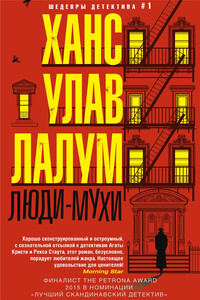
Убит бывший лидер норвежского Сопротивления и бывший член кабинета министров Харальд Олесен. Его тело обнаружено в запертой квартире, следов взлома нет, орудие убийства отсутствует. На звук выстрела к двери Олесена сбежались все соседи, но никого не увидели. Инспектор уголовного розыска Колбьёрн Кристиансен считает, что убийство, скорее всего, совершил кто-то из них. Более того, он полагает, что их показания лживы.
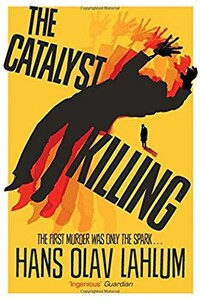
The third mystery in the hugely compelling, bestselling international crime series from Norway's answer to Agatha Christie, Hans Olav Lahlum, The Catalyst Killing will have you guessing to the final clue. The first murder was only the spark… 1970: Inspector Kolbjorn Kristiansen, known as K2, witnesses a young woman desperately trying to board a train only to have the doors close before her face. The next time he sees her, she is dead… As K2 investigates, with the help of his precocious young assistant Patricia, he discovers that the story behind Marie Morgenstierne's murder really began two years ago, when a group of politically active young people set out on a walking tour in the mountains.
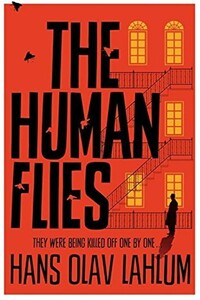
Oslo, 1968: ambitious young detective Inspector Kolbjorn Kristiansen is called to an apartment block, where a man has been found murdered. The victim, Harald Olesen, was a legendary hero of the Resistance during the Nazi occupation, and at first it is difficult to imagine who could have wanted him dead. But as Detective Inspector Kolbjorn Kristiansen (known as K2) begins to investigate, it seems clear that the murderer could only be one of Olesen's fellow tenants in the building. Soon, with the help of Patricia – a brilliant young woman confined to a wheelchair following a terrible accident – K2 will begin to untangle the web of lies surrounding Olesen's neighbors; each of whom, it seems, had their own reasons for wanting Olesen dead.
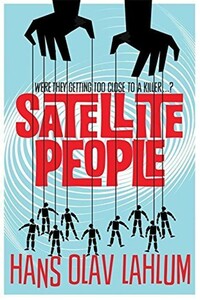
A gripping, evocative, and ingenious mystery which pays homage to Agatha Christie, Satellite People is the second Norwegian mystery in Hans Olav Lahlum's series. Oslo, 1969: When a wealthy man collapses and dies during a dinner party, Norwegian Police Inspector Kolbjorn Kristiansen, known as K2, is left shaken. For the victim, Magdalon Schelderup, a multimillionaire businessman and former resistance fighter, had contacted him only the day before, fearing for his life. It soon becomes clear that every one of Schelderup's 10 dinner guests is a suspect in the case.
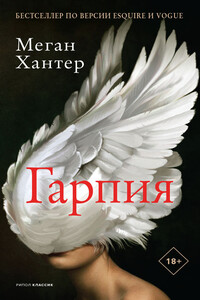
Люси и Джейк – образцовые супруги. У них двое детей, уютный домик и налаженный семейный быт. Он строит карьеру. Она посвятила всю себя семье. Но тихую идиллию нарушает шокирующая весть. Джейк изменил Люси. Теперь уже ничто не будет как прежде… Боль от предательства. Разбитые надежды. Люси и Джейк решают остаться вместе, но с одним условием. Чтобы «уравнять» супругов и спасти брак, Люси трижды причинит боль Джейку… Любым способом, каким захочет.
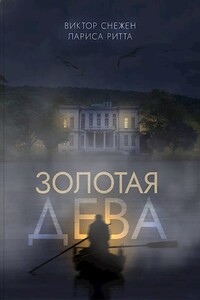
Во время летнего фестиваля искусств на территории бывшей графской усадьбы происходит убийство. Чеховская чайка, призванная олицетворять свободный творческий полёт, может стать символом тёмного мира, где жизнь не имеет цены. Поймёт ли следователь Кречетов, к какому миру принадлежит каждый из персонажей? Сумеет ли он распутать цепочку странных взаимосвязей? А может быть, в этой цепочке замешан призрак графини, блуждающий по аллеям парка и охраняющий тайну старинного клада?
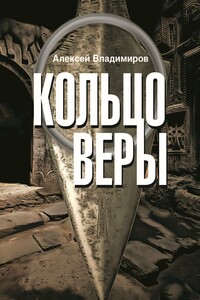
Археолог Вера Буковская при раскопках монастыря в Армении обнаруживает кусок льняной ткани с непонятными надписями и чертежом. Странная находка погружает «везучую Верочку» в кольцо динамично развивающихся событий, предсказать которые не может никто. Командор Тайного ордена хранителей Священного Копья и римский кардинал, магистр Мальтийского ордена и отставной полковник Котов, петербургский академик-востоковед Пиоровский и безжалостный итальянский специалист по «щекотливым делам» охвачены азартом охоты за утерянным тысячелетия назад артефактом.
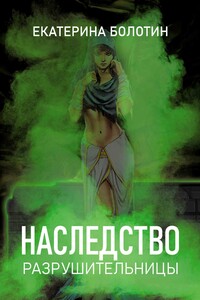
Профессор археологии Парусников обнаруживает в Израиле захоронение Лилит – первой женщины, созданной Творцом вместе с Адамом еще до появления Евы. Согласно легенде, Лилит пыталась подчинить мир с помощью женских чар и за это была уничтожена. У еще не вскрытого учеными саркофага Лилит случайно оказывается Арина, бежавшая в Израиль от невзгод, которые обрушились на нее в Москве. Что произойдет с женщиной, которой достанется энергия Лилит? Не возникнет ли у нее желания подчинить мир своим прихотям? А если возникнет, то кто сможет остановить ее?
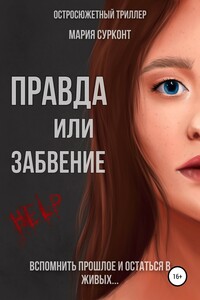
Эрна, молодая девушка, недавно попавшая в аварию, приходит в себя в больнице, рядом с незнакомым человеком, утверждающим, что он ее муж. Девушка не помнит, как оказалась в другом городе и когда успела выйти замуж. Что она делала последние два года? Муж пытается ей помочь вспомнить, однако о многом не рассказывает. А когда на пороге дома появляется полиция, Эрна узнает, что была последней, с кем разговаривала пропавшая без вести девушка, которая исчезла как раз в вечер аварии. Эрна должна восстановить события и понять, что ее связывает с пропавшей, о чем недоговаривает муж и какая истинная причина потери памяти. Перенесись в суровый Берлин и погрузись в мрачную историю Эрны Кайсер.

В книге рассказывается история главного героя, который сталкивается с различными проблемами и препятствиями на протяжении всего своего путешествия. По пути он встречает множество второстепенных персонажей, которые играют важные роли в истории. Благодаря опыту главного героя книга исследует такие темы, как любовь, потеря, надежда и стойкость. По мере того, как главный герой преодолевает свои трудности, он усваивает ценные уроки жизни и растет как личность.